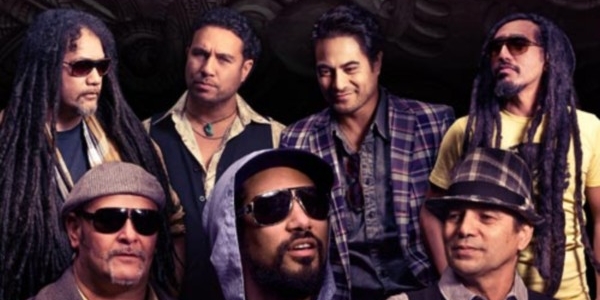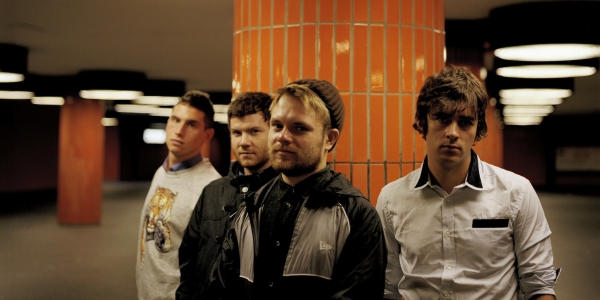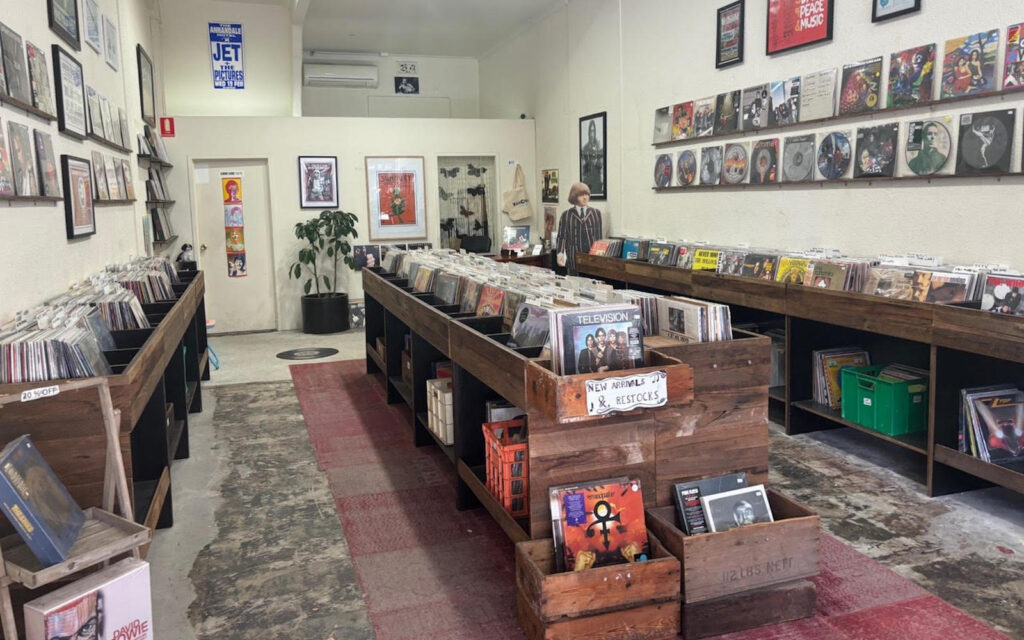“We just came off a five-week tour in the States which was really good,” guitarist, vocalist and all-round sweetheart Logan Bell says. “We’ve lost count now with how often we’ve been. We’ve been going about twice a year for a while now.”
America is often a challenging territory for Antipodean bands to break into but Bell explains that it is the band’s connection with Hawaii that has made their transition to the mainland easier. “We’ve been pretty blessed,” he says. “We’re coming through the back door so to speak, we’ve been lucky to be popular right throughout the Pacific all the way up to Hawaii. The Hawaiians have jumped on board, really helping us to break into mainland USA. A lot of the students go there for schooling and get off the islands for more opportunity so they tend to take their culture and lifestyle with them. They’ve helped perpetuate Katchafire’s message.”
With Aotearoan reggae and Katchafire’s cultural history being such a prominent part of the band’s lyrical and spiritual focus, Bell explains why traditionally the connection between Hawaii and Maori culture is so strong. “We’re all part of the Polynesian umbrella coming through our ancestral migration,” he explains. “Even though we’re Maori, the migration saw us go right through the Pacific and even South America; there’s definitely a big connection. The Hawaiians seem to really look up to our culture and what we’ve retained here being the original people of the land.”
With four albums, a host of collaborations and countless singles on the Katchafire shelf, it’s their prolific touring that drives the band more than anything else does. Barely at home, Bell explains that it’s their loyalty and their connection as an extended family that enables the life that they love so much. “It’s been really good on the international travel front; we’re really grateful,” he says genuinely. “Behind any successful group is a strong family backbone and that’s a really important ingredient for Katchafire. We’re lucky to have good strong families that understand our dream and want to help us achieve that dream. They’re holding down the fort, paying the bills and changing the nappies, and we get to fool around. Sometimes we get to take them and they get to see what we get to see – any chance and we’ll take them.”
On The Road Again is barely a year old but the band knows that it’s important to keep the wheels turning and pushing towards a new album. With Katchafire averaging two to three years between their releases in the past, they’re moving forward quickly this time, aligning with the insatiability for new material that today’s audiences possess. Despite an almost unending touring schedule, Bell says that the band will keep writing on the road.
“Just before we came out to the States for the second time this year we were in the studio,” he says. “We laid down six tracks, so we’ve got the wheels turning on some new material and we’re gonna treat it the same way as the last album. Because we’re all so busy we’re gonna try and find time on the road to finish that up. We’re trying to aim for midway next year to get that out. Times have changed and ‘cause there’s so much happening now it’s all about trying to keep that public presence and the lifecycle of an album has come down to a year or year and a half. That’s really good, in a way, for the musicians ‘cause it breaks the monotony and keeps it fresh for the audience as well. Over the years we tend to refine things and keeping that lifecycle to a minimum means you’re pumping out fresh stuff. We’re working on some of those new songs appearing when we play out there as well.”
The thematic drive of their last album was personal experience, spiritual connection and tribute to their heritage. Maori cultures permeates the very essence of so much of what Katchafire create and Bell muses on the possible explanation for why he feels so many New Zealanders manage to keep a positive view in the face of adversity. “For us we’re always writing about our experiences and a lot happen to be positive, as well as missing home and some more testing things,” he says. “I guess we’re a happy bunch of people – there’s something in the water over here,” he continues and then laughs. “Oh actually there’s something in the grass, the magic grass. Even if you’re down, well, most Kiwis have a hundred problems but we keep on smiling.”
BY KRISSI WEISS







